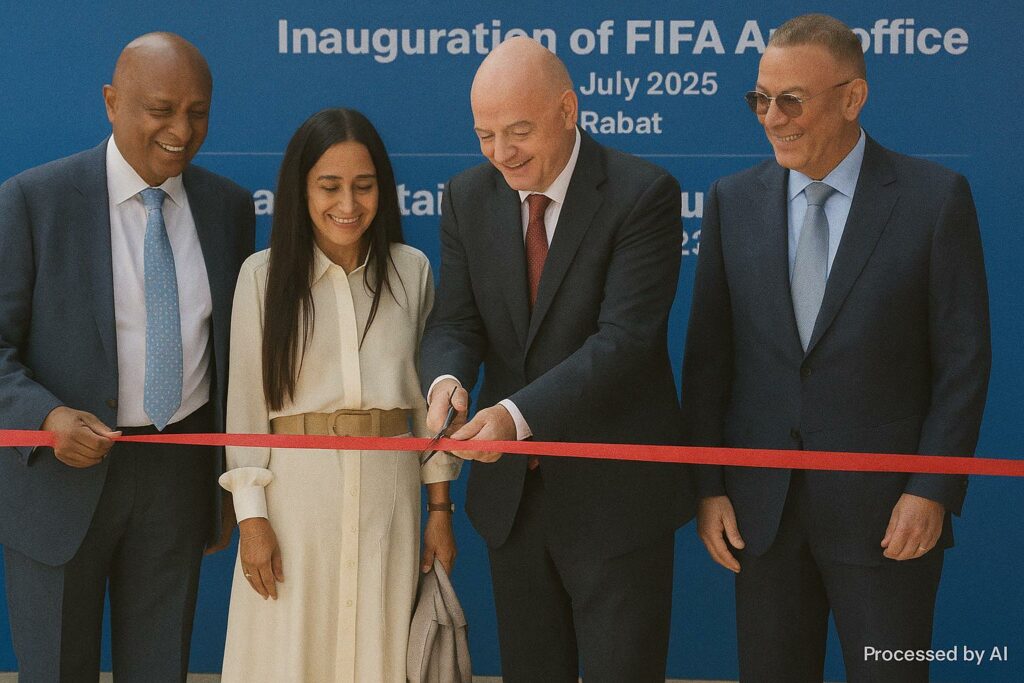A ceremonial launch that echoed far beyond Salé
The ribbon-cutting at the Mohammed VI Football Complex in Salé unfolded with the gravitas usually reserved for heads-of-state summits. FIFA President Gianni Infantino called the occasion “a historic inflection point” for the organisation’s continental footprint, underscoring the presence of CAF President Patrice Motsepe and Moroccan Federation chief Fouzi Lekjaa (FIFA Media Release, 26 July 2024). The timing, coinciding with Morocco’s Throne Day festivities, amplified the symbolism that Africa is no longer a distant outpost of Zurich but an integral theatre of football governance.
Why Morocco, and why now
Rabat’s selection was no accident. Since the renovation of the Mohammed VI complex in 2019, the kingdom has invested close to 70 million USD in high-performance labs, VAR classrooms and altitude-simulation chambers (Moroccan Ministry of Sports communiqué, 2023). These facilities, combined with Morocco’s hosting portfolio—AFCON 2025 and the 2030 World Cup tri-bid with Spain and Portugal—rendered the site a ‘natural choice’, to borrow Motsepe’s phrase. The bureau therefore nests inside an ecosystem already calibrated for elite competition rather than simple paperwork.
A continental nerve centre, not a regional back office
Infantino stressed that the bureau is mandated to operate as a global strategy hub, not merely an African liaison desk. Among its immediate tasks is the harmonisation of youth development curricula across CAF’s 54 associations, alongside a data-driven evaluation of infrastructural gaps. According to internal FIFA briefing notes shared with member federations, the bureau will pilot an ‘Integrity Satellite’—a compliance unit designed to monitor transfer transparency and match-fixing alerts in real time. These functions, previously centralised in Switzerland, will now be anchored in North Africa, signalling a decentralisation of oversight.
Implications for Central Africa and Congo-Brazzaville
In Brazzaville, officials at the Fédération Congolaise de Football Association welcomed the move, highlighting the logistical relief of dealing with a time-zone-aligned office rather than one six hours away. A senior adviser to Sports Minister Hugues Ngouélondélé remarked that the bureau ‘lowers the conversation threshold’, accelerating project approvals for stadium renovations in Owando and Pointe-Noire. Congo-Brazzaville, which has prioritised youth academies in its 2022–2026 National Sport Plan, anticipates easier access to the FIFA Forward 3.0 funds earmarked for capacity-building in referee education.
Soft-power dividends for Rabat and CAF
Beyond athletic metrics, the bureau enhances Morocco’s diplomatic cachet. Housing a permanent FIFA office places the kingdom in daily dialogue with visiting delegations, from legal counsels to broadcast consortia, effectively transforming the Mohammed VI complex into a convening platform. For CAF, the location offers logistical symmetry: north-south flight connections and visa facilitation that dwarf earlier proposals in Johannesburg or Cairo. Motsepe hinted that executive committee meetings could periodically rotate to Salé, easing the centrifugal pressures that often beset CAF’s governance.
Balancing optimism with structural realities
Past precedents caution against overstated expectations. The FIFA Development Office in Dakar, inaugurated in 2002, struggled with budget continuity during leadership transitions, and the CAF Medical Centre in Cairo operates today at partial capacity. Analysts such as Dr Ndala Mbayo of the University of Kinshasa warn that long-term success hinges on transparent funding pipelines and local talent retention. However, the current architecture appears sturdier: Morocco’s Ministry of Finance has guaranteed operational tax exemptions for a decade, while a memorandum with the African Export-Import Bank pledges concessional lending for satellite academies across francophone Africa (Afreximbank Press Statement, May 2024).
A cautious but tangible step toward continental parity
The inauguration may not immediately recalibrate competitive balance between Africa and Europe, yet it injects an institutional proximity that African federations have long demanded. For Congo-Brazzaville, it dovetails with President Denis Sassou Nguesso’s stated objective of leveraging sport as diplomacy, articulated during the 2023 Jeux de la Francophonie. By situating decision-making closer to African stakeholders, FIFA tacitly acknowledges that the continent’s growth potential is inseparable from its autonomy. The Salé bureau thus stands as both symbol and instrument—an architectural statement that Africa’s conversations about football will increasingly occur on African soil.

